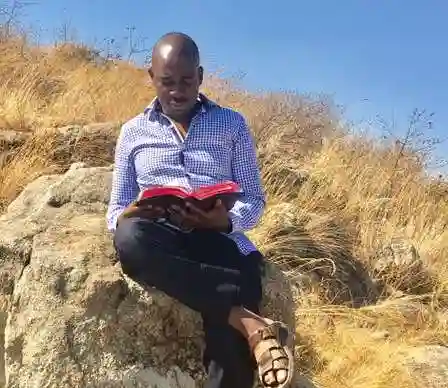The opposition party, Citizens Coalition for Change (CCC), has stirred controversy by proposing to establish a predominantly Christian community in Zimbabwe if it emerges victorious in the 2023 harmonized elections. This pledge has raised concerns among individuals who question the place of other religions in this envisioned society.
Outlined in their 2023 manifesto, led by Nelson Chamisa, the CCC party states that one of their strategies to revive Zimbabwe’s status as a prominent nation within the Southern African Development Community (SADC) region and Africa as a whole is to reinstate Christian values. Section 1.3.1. reads:
A God-Fearing Nation — God First – God Is In It We will restore Zimbabwe back to God in honour, values, faith, worship and praise. We will give glory to God for all our victories, successes and gains. We will restore the role of the church as the custodians and guardians of conscience, morals and ethics of society. The church shall provide a campus to government speaking truth to power. In this regard, we will create a special mechanisms, structure and institution to facilitate for the role of the church in governance. We shall dedicate nation, country, its people and resources to God for His glory. We will rededicate Zimbabwe to God and rebuild the alter, covenant, decrees and ordinances. The CITIZENS GOVERNMENT will create a conducive and an enabling environment for churches to worship God. Zimbabwe shall be known as a place of salvation, healing, redemption and restoration to the glory of God the Creator. Zimbabwe shall be known for religious tourism and visitation.
Journalist Hopewell Chin’ono advocates for a secular Zimbabwe, where the State is separate from religious influence. He emphasises the need to prioritize real issues and avoid imposing beliefs, ensuring every citizen feels protected regardless of their faith. He said:
Opposition should avoid getting itself entangled in emotional arguments of faith and religion. Zimbabwe doesn’t need a theocracy run by Christians because we have Muslims, Hindus, traditional religion folk and even atheists who are Zimbabweans. They are all bonafide citizens who should not feel ostracised because one belief has been put ahead of others. The opposition should promise to run the State professionally without religion dictates. Zimbabwe should always be a secular State where every citizen feels protected by the State regardless of their religious views. I have had this discussion with Nelson Chamisa in 2020 and we agreed to disagree. I am a Christian but that is my religious belief which I should not impose on anyone else, more so if I am President. My view is that politicians should keep their faith to themselves and not impose their beliefs on everyone else. More importantly, they should avoid putting things in manifestos that will take away focus from real issues of hospitals, schools, jobs, economy, infrastructure and related issues. Zimbabwe should be a secular State where there is separation between the Church and the State.
Although the manifesto did not explicitly reference “Christianity,” the inclusion of the term “Church” implies that the party may envision Zimbabwe as a predominantly Christian community. This assumption arises from the understanding that a church traditionally denotes a place of public Christian worship and is not typically associated with Muslims or Hindus, as their religious practices differ. Consequently, the reference to a church may imply a preference for Christianity as the primary religious influence in the envisioned state.
Rey Gwisai, a Zimbabwean actor, argued that Zimbabwe was never a Christian society, highlighting the prevalence of traditional cultural practices. He questioned the terms “rededicate” and “restore” and expressed openness to further guidance. He said:
The words ‘rededicate’ & ‘restore’ mean returning something to its default state. At what point was Zimbabwe practicing beliefs related to God and the church before? Wasn’t Zimbabwe predominantly following traditional cultural practices as its religion? “I stand guided “
According to individuals such as GFGM (@GFGMutsengi) and Livingstone Dzikira (@Dzikira), there is no issue with defining the religious identity that Zimbabwe should embrace as a nation. They argue for the importance of clarity in determining the country’s religious affiliation. Dzikira said:
Hopewell my brother, while you make a clear point, you cannot deny these people their right to tell us how they propose to govern. It is better we know what they stand for just as their opponents can wake us up to statutes of spirit mediums in the city.
Mutsengi said:
@nelsonchamisa is right on this one. Foundations of democracies are anchored in values from Christendom i.e. equal rights of all men as bestowed by the creator not by any man or gvt. The US is found on these principles and a theocracy it is not.
Some individuals have pointed out that countries like Saudi Arabia, United Arab Emirates, Italy, Ireland, Northern Ireland, the USA, Portugal, Brazil, and others have strong religious foundations. They question why Zimbabwe couldn’t have a predominant religious influence, without forcing anyone to adhere to it. They argue that devoted Christians would appreciate this aspect alongside other essential elements such as education and employment. They suggest that as long as other religions are allowed to freely practice their beliefs, there would be no issue with Zimbabwe embracing Christianity, similar to how Saudi Arabia is known for being a Muslim government.
Saudi Arabia has been known for its limited freedom of worship. The country’s legal system is based on Islamic Sharia law, and the government officially recognises and supports the practice of Islam as the predominant religion. While non-Muslims are allowed to worship in private, public worship or public promotion or spreading of religions other than Islam is strictly regulated and often restricted. Non-Islamic religious buildings and symbols are generally not permitted, and conversion from Islam to another religion is considered apostasy, which is a punishable offence under Saudi law. However, in recent years, there have been some efforts to promote interfaith dialogue and tolerance, and there have been small improvements in religious freedom.

